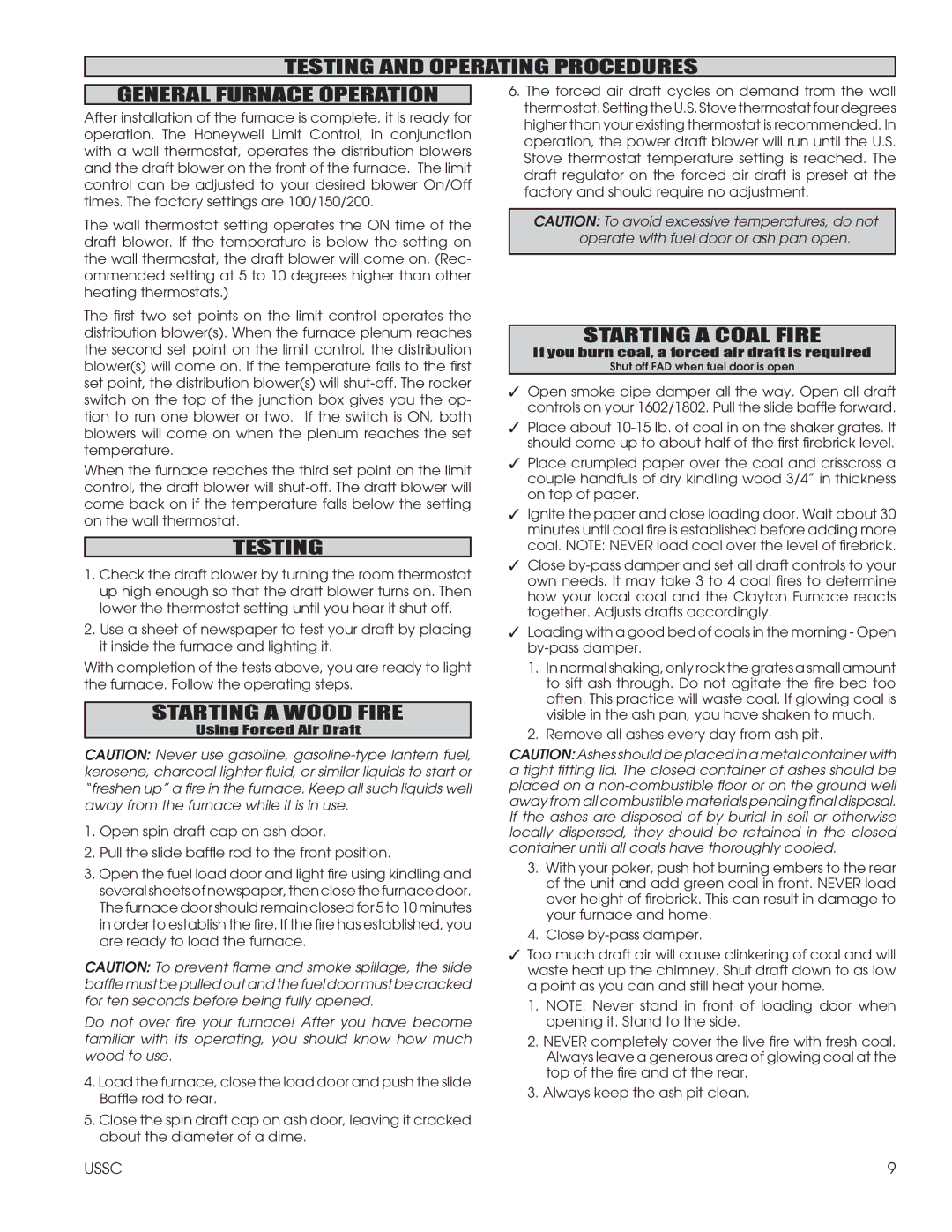1602G, 1802G specifications
The United States Stove Company proudly presents the 1802G and 1602G models, two exceptional additions to their line of pellet stoves, designed to meet the heating needs of modern homes while providing an array of features that enhance comfort and convenience.The United States Stove 1802G is a powerful pellet stove with a heating capacity of up to 1,800 square feet, making it suitable for larger spaces. With a sleek design and a decorative cast iron door, this unit not only provides warmth but also adds an aesthetic appeal to your living environment. The 1802G is equipped with a large hopper capacity, allowing for extended burn times and minimizing the need for frequent refueling. One key feature is its state-of-the-art auto igniter, which ensures a reliable and hassle-free start-up.
The 1602G model, on the other hand, is designed for smaller spaces, heating up to 1,200 square feet efficiently. This model shares many features with the 1802G but is compact enough to fit snugly into tight spaces without sacrificing performance. The double-walled construction of both units promotes safety and efficiency, contributing to low emissions and optimal heat preservation.
Both models come equipped with advanced technology, including a programmable thermostat that allows users to set the stove to operate according to their preferred schedules, optimizing energy usage while maintaining comfort. The EPA-certified design ensures that both stoves meet stringent environmental standards, making them an eco-friendly choice for homeowners.
Additionally, these stoves feature a built-in fan that circulates warm air throughout the space, enhancing the overall heating efficiency. The user-friendly control panel gives consumers easy access to adjust settings, monitor fuel levels, and manage the burn rate, providing both versatility and control.
Durability is a hallmark of the United States Stove Company, and the 1802G and 1602G models are no exception. Constructed from high-quality materials, these pellet stoves are built to withstand the rigors of daily use while ensuring longevity.
In conclusion, the United States Stove 1802G and 1602G models represent the perfect blend of functionality, efficiency, and style. With advanced features, eco-friendly technology, and robust construction, they are ideal choices for homeowners seeking reliable and effective heating solutions. Whether you require a powerful unit for a spacious area or a compact model for a cozy room, these stoves deliver exceptional performance and comfort.
